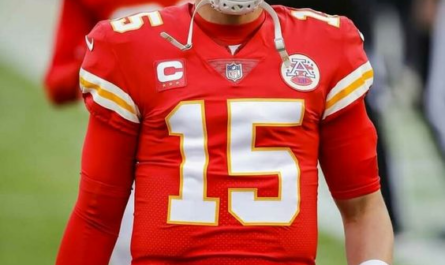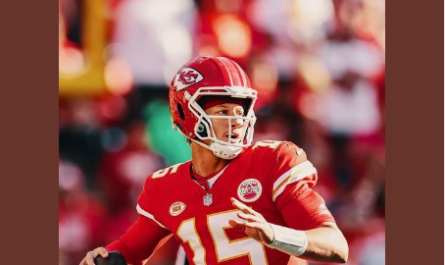Brett Favre: A Complex Case Study in Leadership
[bg_collapse view=”button-orange” color=”#4a4949″ expand_text=”Show More” collapse_text=”Show Less” ]
Brett Favre had one of the most storied careers in NFL history as a quarterback for the Atlanta Falcons, Green Bay Packers, New York Jets, and Minnesota Vikings over 20 seasons from 1991-2010. His gunslinger playing style and never-say-die attitude made him a fan favorite. However, his leadership also presented contrasts, with moments that inspired and others that created turmoil. Favre’s career offers a complex mix of qualities that both positive and negative lessons for future leaders.
The Passionate Competitor
One of Favre’s defining traits was his relentless passion and competitiveness. From his rookie season until his final snap, Favre played each game as if it were his last with a fiery intensity. He left it all on the field regardless of his body’s pain or the game situation. This type of drive is crucial for any leader hoping to inspire greatness in their team.
Leaders need to show an unbridled passion for the vision and mission. They must believe in it with every fiber of their being and communicate that conviction to their followers. When the challenges come, as they inevitably do, passion and belief in the cause are what will sustain the team through adversity. Favre demonstrated this perfectly by always playing to win no matter the odds or personal cost.
His love for competition was evident from his rookie season when he replaced an injured Don Majkowski as starter for the Packers. Though green, Favre willed his team to victory with gutsy plays. This set the tone for his career. No lead was safe with Favre under center who would fight until the final whistle blew.
His passion was infectious and helped make the Packers a perennial contender. The team fed off his energy and competitive fire, never feeling out of a game. For future leaders, embracing challenges with relish and contagious enthusiasm for the mission is key to empowering others to excel. Favre proved the transformational impact of a leader who lives, breathes, and loves what they do.
Adaptability and Quick Decision Making
Another hallmark of Favre’s leadership was his ability to adapt strategies on the fly. As the quarterback, he was the field general changing plays at the line of scrimmage based on the defense. Favre had a pre-snap mastery of diagnosing looks and checking into the best option, often an audible, that put his team in the optimal position.
This type of flexibility and rapid decision making under pressure is vital for any leader. The ability to assess situations, adapt plans accordingly, and make the right call when it matters most is incredibly valuable. Favre showed the importance of being able to think on one’s feet and adjust strategies based on real-time developments or unforeseen challenges.
Rigid adherence to pre-determined plans often fails when realities change. Great leaders embrace flexibility and nimble thinking. They empower subordinates while also taking charge to solve problems creatively. Favre led by example in this regard, showcasing adaptive leadership that optimized opportunities. For future leaders, emulating Favre’s split-second diagnostic skills and willingness to audible is recommended for thriving in today’s fast-paced business environment.
Leading by Example
Beyond inspiring with passion and skill, Favre also motivated through action. He was never afraid to put his body on the line with bruising runs or devastating blocks to help teammates. Favre made countless sacrifices of his own flesh and blood to gain that extra yard. This set the standard that no effort was too great when striving for the team’s success.
Leaders gain followers by demonstrating the commitment they demand from others. Favre proved he would do anything necessary for the Packers to win, even if it meant personal harm. This bred respect and loyalty from those he led. Future leaders can learn from Favre’s example of “putting skin in the game” and being willing to get their hands dirty alongside subordinates. Leading from the front and sacrificing personal comfort sends a powerful message that mobilizes people for a shared mission.
Indecision and Mixed Messages
While Favre inspired in many ways, his leadership also presented challenges through indecisiveness and inconsistency. Most notably, his retirement flip-flopping created years of uncertainty in Green Bay. After retiring initially in 2008, Favre came out of retirement a year later to join the Jets, antagonizing Packers fans and causing turmoil in both locker rooms.
Leaders must communicate clearly and avoid mixed signals that undermine trust and cohesion. Favre’s retirement saga bred confusion as he sent conflicting messages about his future plans. This damaged his legacy in Green Bay to some degree. Future leaders would be wise to learn from this lesson. They must be resolute in their vision and strategy while maintaining transparency with stakeholders. Mixed messages breed doubt, so a leader’s word should be their bond to maintain credibility.
Ego and Self-Interest
At times, Favre’s competitive fire crossed over into ego and putting personal desires above team interests. Most notably, after the Packers moved on from Favre by drafting Aaron Rodgers, he refused to facilitate a smooth transition and instead forced a trade to the Jets. This left Green Bay in quarterback purgatory for a year.
While passion is crucial, leaders must check their ego at the door and prioritize the collective over individual agendas. They serve the organization and people, not the other way around. Favre could have handled the end of his Packers tenure with more grace by aiding in Rodgers’ development rather than making it difficult. Future leaders would be wise not to let ego jeopardize team harmony and success out of self-interest. The sign of a true leader is putting others first, even when it means personal sacrifice.
The Overall Lesson
In total, Brett Favre’s career presents a complex case study with valuable leadership lessons for both aspiring and seasoned leaders. On one hand, his undying passion, quick thinking, and willingness to lead by sacrificial example inspired greatness in those he guided. On the other, moments of indecision, mixed signals, and ego put personal desires over team cohesion at key times.
The key takeaway is the need for balance and moderation. Leaders must channel passion productively while avoiding volatility. They must communicate clearly and put the collective mission above all else, even when tough personal choices arise. Adaptability, strong decision making, and inspiration through action are paramount. But leaders must couple these strengths with strategic consistency, transparency, and selflessness.
Brett Favre was a one-of-a-kind quarterback whose gunslinger style perfectly matched his bold leadership abilities and flaws. While no leader will be perfect, aspiring ones can learn from both the inspiring highs and cautionary lows of Favre’s career. By embracing his competitive spirit and example-setting ways while steering clear of indecision and ego, the next generation of leaders will be equipped to motivate exceptional performance through balanced passion and putting the team first. Favre’s complex legacy offers a nuanced case study with lessons that can empower leaders to inspire greatness.
[/bg_collapse]



